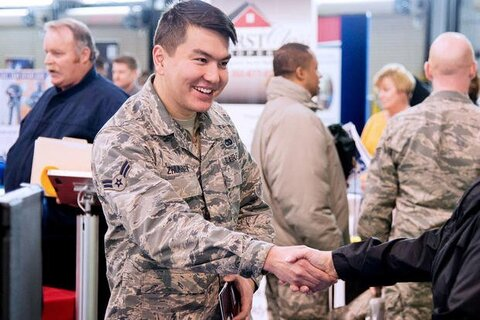National Hire a Veteran Day: HelpingVeterans Find Identity Beyond Their Rank
- Logan Spiewak
- Jul 20, 2025
- 2 min read

“I didn’t know how to introduce myself without my rank.” This simple yet powerful statement
captures the deep struggle many Veterans face when transitioning from military life to the
civilian world. In the military, rank is far more than just a title. It represents years of hard work,
discipline, leadership and a clear sense of identity. It’s how Veterans define themselves and how
others recognize their dedication and achievements. When that rank is no longer part of
everyday life, many Veterans experience a profound sense of loss and uncertainty. The
structure, routine and purpose that once guided them suddenly disappear, leaving them
questioning their worth and their place in society.
The civilian workforce operates differently. Titles and roles can be vague, and the culture is less
regimented. Veterans often find it difficult to translate their military experience into civilian terms
or to explain how their skills apply outside the military context. They might feel invisible or
undervalued, which can erode confidence. Beyond the practical challenges, there is a
psychological toll. A study by the Pew Research Center found that nearly half of Veterans
reported difficulty adjusting to civilian life, with many citing feelings of isolation and a lack of
belonging (Pew Research Center, 2021). This “identity crisis” can delay or derail a Veteran’s
successful reintegration into society.
Employment plays a vital role in helping Veterans reclaim their identity and purpose. A
meaningful job is more than just income—it’s a foundation for rebuilding confidence and
self-worth. When Veterans secure work that values their leadership, discipline and
problem-solving abilities, they begin to regain confidence and a sense of belonging. National
Hire a Veteran Day highlights the importance of this transition. It serves as a reminder to
employers and communities that Veterans are ready and able to contribute meaningfully to the
workforce. Hiring Veterans acknowledges their service and supports their journey toward
rebuilding their civilian identity. A fulfilling job gives Veterans a new way to introduce
themselves—not by their rank, but by the skills and dedication they bring to their role. It helps
them find new missions, goals and a sense of belonging in their communities and workplaces.
Employers can do more than just offer a job. Creating supportive environments that understand
the unique challenges Veterans face is crucial. This includes mentorship programs, clear
pathways for career advancement and recognition of transferable skills. Veteran-focused
organizations, like the U.S. Chamber of Commerce Foundation’s Hiring Our Heroes program,
emphasize the importance of connecting Veterans with employers who value their experience
(U.S. Chamber of Commerce Foundation, 2022). These initiatives help ease the transition and
foster long-term success.
References:
Pew Research Center. (2021). Military to civilian: Veterans’ challenges after service. Retrieved
from
ter-service/
U.S. Chamber of Commerce Foundation. (2022). Hiring Our Heroes: The Value of Veteran
Employment. Retrieved from https://www.uschamberfoundation.org/hiring-our-heroes
U.S. Department of Veterans Affairs. (2023). Transition Assistance Program (TAP). Retrieved
National Veterans Foundation. (2023). Veteran Employment Challenges and Solutions.
Retrieved from https://nvf.org/veteran-employment/



Comments